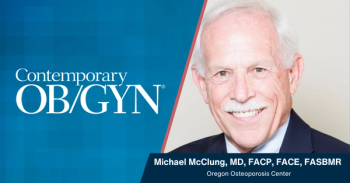
Fruit and vegetable intake and risk of fractures
New research explored whether eating more fruit and vegetables per day could decrease risk of fractures.
An association was found between eating at least one more serving of fruit and vegetables per day and a decrease in risk of fractures, according to a systematic
The level of evidence is moderate for this connection reported in the online journal
The Brazilian authors searched the
Of the 1,192 studies screened, 13 were included in the systematic review and 10 were included in the pooled analysis: 6 cohort studies (225,062 subjects) and 4 RCTs.
The primary outcome of the review and analysis was risk of fractures at any site and hip fracture within 1 year of follow-up. The two secondary outcomes were changes in bone mineral density (BMD) for the hip, lumbar spine, forearm and other sites, and variations in bone markers.
A 1-year follow-up was required to evaluate BMD, whereas the minimum follow-up period for the bone markers was 3 months. The pooled hazard ratio (HR) of the hip in five of the six cohort studies was 0.92 (95% confidence interval [CI]: 0.87 to 0.98).
Heterogeneity of the five studies was moderate (I2 = 55.7%; P = 0.060). Two of the cohort studies evaluated risk of any fracture, for which the HR was 0.90 (95% CI: 0.86 to 0.96), with a heterogeneity of 24.9% (P = 0.249).
Conversely, the four RCTs found no link between the bone resorption marker C-terminal telopeptide (CTx) and 3 months of fruit and vegetable intake.
“Our results suggest that a nutrient-rich dietary pattern has benefits on bone health both in adulthood and in more advanced ages,” the authors wrote. “Moreover, a fruit and vegetable intake has been linked to a healthier diet pattern, with fewer sugars, soft drinks, fats, etc., which also might contribute to its beneficial effect on bone health.”
However, the current review did not include studies that assessed the Mediterranean, vegetarian, vegan, lactose-free or other specific dietary patterns because they encompass more than fruits and vegetables, including peas, beans, chickpeas, lentils, oilseeds, lean meats and other foods. In addition, some of these alternative diets exclude dairy products, meat and other foods.
“Therefore, they cannot be used to compare other people who do not have healthy eating habits without generating a confusion bias,” the authors wrote.
Only one study in the current review evaluated fractures (
The authors noted that the review’s lack of a connection between the bone resorption marker CTx and fruit/vegetable intake should be cautiously interpreted because bone markers are surrogate outcomes and that using bone markers as predictors of fractures remains controversial. The evidence grade for this outcome was also low.
Eating fruits and vegetables could have a beneficial effect on bone metabolism, due to the classic hypothesis that such intake slightly alters the basic acid balance in alkaline favor, which might increase calcium reabsorption through the renal tubules and reflect a decrease in bone loss. Consuming fruits and vegetables also has been linked to a greater reduction-oxidation (redox) capacity, thus increasing the likelihood of bone remodeling and bone repair, while reducing bone loss.
Newsletter
Get the latest clinical updates, case studies, and expert commentary in obstetric and gynecologic care. Sign up now to stay informed.








